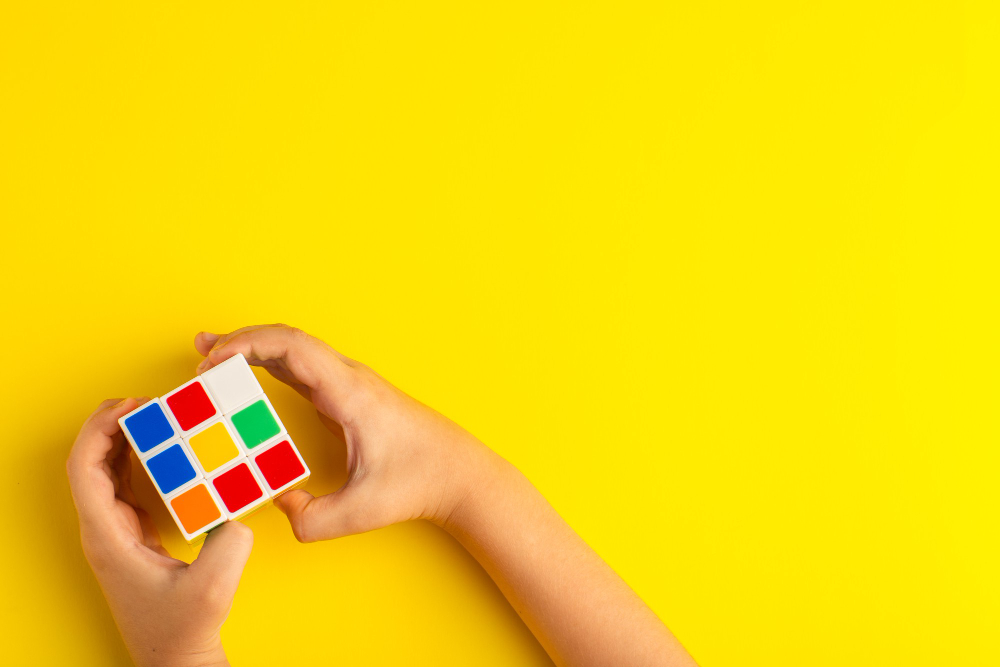Beyond the Cube: Exploring Other Puzzle Games and Their Benefits
The Rubik’s Cube has long been a favorite among puzzle enthusiasts, captivating millions with its colorful twists and turns. While solving this iconic 3D puzzle offers numerous cognitive benefits, it is just one of many puzzle games that can enhance critical thinking, problem-solving skills, and mental agility. In this article, we will explore a variety of puzzle games beyond the Rubik’s Cube, delve into their unique benefits, and discuss how engaging with these puzzles can contribute to personal development and cognitive growth.
The Cognitive Benefits of Puzzle Games
Before we dive into specific games, it’s important to understand why engaging with puzzles can be so beneficial. Research shows that puzzle-solving activates various cognitive functions, such as:
- Problem-Solving Skills: Puzzles encourage players to devise strategies, think critically, and analyze information, which are essential skills in both academic and real-world situations.
- Memory Enhancement: Many puzzles require players to remember sequences, patterns, or rules, which can improve memory retention and recall abilities.
- Spatial Awareness: Puzzles that involve spatial reasoning, such as 3D puzzles or tangrams, can enhance an individual’s spatial awareness and visualization skills.
- Focus and Concentration: Engaging with complex puzzles can help improve attention span and concentration, as players must maintain focus to solve the challenges presented.
- Stress Relief: Solving puzzles can be a calming activity that helps reduce stress and anxiety levels, providing a mental break from the pressures of daily life.
With these cognitive benefits in mind, let’s explore some fascinating puzzle games that offer a similar challenge to the Rubik’s Cube while engaging different skills and interests.
1. Jigsaw Puzzles
Overview
Jigsaw puzzles are classic puzzles that consist of interlocking pieces that form a complete image when assembled correctly. They come in various sizes and themes, appealing to a wide audience.
Benefits
- Visual-Spatial Skills: Assembling jigsaw puzzles enhances spatial awareness and visual perception, helping players improve their ability to visualize how pieces fit together.
- Patience and Persistence: Completing a jigsaw puzzle requires patience and dedication, teaching valuable lessons in perseverance and focus.
- Relaxation: The repetitive action of fitting pieces together can be meditative, promoting relaxation and mindfulness.
Conclusion
Jigsaw puzzles are perfect for both individuals and groups, making them an excellent choice for family bonding or solo relaxation.
2. Sudoku
Overview
Sudoku is a logic-based number-placement puzzle that involves filling a 9×9 grid with numbers from 1 to 9, ensuring that each number appears only once in each row, column, and 3×3 subgrid.
Benefits
- Critical Thinking: Sudoku requires logical reasoning and deduction, helping to sharpen problem-solving skills.
- Concentration: The focus needed to complete a Sudoku puzzle enhances concentration and attention to detail.
- Cognitive Flexibility: Players learn to adapt their strategies as they encounter different challenges within the puzzle.
Conclusion
Sudoku is accessible and can be played at various difficulty levels, making it suitable for beginners and experts alike.
3. Tangrams
Overview
Tangrams are ancient Chinese puzzles consisting of seven geometric pieces, called tans, which can be arranged to form a wide variety of shapes and figures. The objective is to recreate a particular shape using all seven pieces without overlaps.
Benefits
- Spatial Reasoning: Tangrams enhance spatial awareness and the ability to manipulate shapes mentally.
- Creative Thinking: Players can create numerous designs, promoting creativity and imaginative thinking.
- Problem-Solving Skills: Finding solutions to fit the pieces into specific shapes requires critical thinking and strategy development.
Conclusion
Tangrams are not only fun but also a great way to develop cognitive skills through play.
4. Logic Puzzles
Overview
Logic puzzles are brain teasers that require deductive reasoning and logical thinking to solve. These puzzles often present scenarios or riddles that must be unraveled using clues and logical reasoning.
Benefits
- Enhanced Reasoning Skills: Engaging with logic puzzles strengthens analytical and deductive reasoning skills.
- Improved Focus: Solving logic puzzles demands concentration and careful thought, which can translate into improved focus in other areas of life.
- Mental Agility: Logic puzzles can be complex and challenging, pushing the brain to think critically and creatively.
Conclusion
Logic puzzles come in various formats, from classic riddles to modern puzzle books, ensuring that there’s something for everyone.
5. Crossword Puzzles
Overview
Crossword puzzles involve filling in a grid with words based on clues provided for each word. They often vary in difficulty and theme, providing entertainment and challenge for word enthusiasts.
Benefits
- Vocabulary Expansion: Regularly solving crosswords can help improve vocabulary and word recall.
- Cognitive Flexibility: Crossword puzzles encourage players to think in different ways, connecting clues to solve the puzzle.
- Memory Enhancement: Remembering words and their spellings strengthens memory skills over time.
Conclusion
Crosswords are a fantastic way to engage with language while providing mental exercise and fun.
6. Escape Room Games
Overview
Escape room games are immersive experiences where players work together to solve puzzles and riddles in order to “escape” from a themed room within a set time limit.
Benefits
- Teamwork and Collaboration: Escape rooms foster teamwork and communication skills, as players must collaborate to solve puzzles.
- Critical Thinking Under Pressure: The time limit adds an element of urgency, requiring quick thinking and adaptability.
- Real-World Problem Solving: Players often encounter scenarios that mirror real-life problem-solving situations, enhancing their ability to think on their feet.
Conclusion
Escape rooms provide an exhilarating way to engage with puzzles and develop important social and cognitive skills.
7. Rubik’s Cube Variations
Overview
While the traditional Rubik’s Cube is a classic puzzle, various variations exist, including 2×2, 4×4, and even shape-shifting cubes like the Mirror Cube. Each variation presents unique challenges and requires different strategies to solve.
Benefits
- Enhanced Problem-Solving Skills: Each variation challenges players to think critically and adapt their strategies accordingly.
- Fine Motor Skills: Manipulating the cube enhances dexterity and hand-eye coordination.
- Focus and Concentration: The intricacies of solving different cube types require intense focus and attention to detail.
Conclusion
Exploring different Rubik’s Cube variations can provide hours of entertainment while enhancing cognitive abilities.
8. Brain Teasers and Riddles
Overview
Brain teasers and riddles are short puzzles or questions that challenge the mind, often requiring lateral thinking and creative problem-solving to arrive at the answer.
Benefits
- Creative Thinking: Riddles encourage out-of-the-box thinking and foster creativity.
- Cognitive Flexibility: Solving brain teasers requires players to switch between different lines of thought, enhancing cognitive flexibility.
- Social Interaction: Sharing and solving riddles with friends or family can promote social interaction and collaboration.
Conclusion
Brain teasers are perfect for gatherings and parties, providing a fun way to engage with others while stimulating the mind.
9. Chess
Overview
Chess is a classic strategy board game that has been played for centuries. It involves two players competing to checkmate the opponent’s king using various pieces, each with unique movements and strategies.
Benefits
- Strategic Thinking: Chess requires foresight, planning, and strategic thinking, enhancing cognitive skills that are applicable in various aspects of life.
- Problem-Solving: Each game presents unique challenges, requiring players to adapt their strategies and solve problems in real-time.
- Concentration and Focus: The complexity of the game demands concentration and focus, helping players improve their attention span.
Conclusion
Chess is not only an enjoyable pastime but also a powerful tool for cognitive development and strategic thinking.
10. Digital Puzzle Games
Overview
In the digital age, many traditional puzzle games have transitioned to online platforms and apps, providing a modern twist on classic puzzles. Games like Candy Crush, Portal, and The Witness offer engaging puzzles that test various skills.
Benefits
- Accessibility: Digital puzzles can be accessed anywhere and anytime, making it easy to engage in brain training on the go.
- Variety of Challenges: Many digital games offer a wide range of puzzles, from match-three games to complex escape room scenarios, catering to different interests and skill levels.
- Social Features: Online puzzle games often include social elements, allowing players to compete with friends, share scores, and collaborate on challenges.
Conclusion
Digital puzzle games combine entertainment with cognitive benefits, making them an excellent choice for modern puzzle enthusiasts.
Conclusion
While the Rubik’s Cube has captured the hearts and minds of many, the world of puzzles extends far beyond this iconic cube. Each puzzle game offers unique challenges and benefits, providing opportunities for cognitive growth, social interaction, and relaxation. From classic jigsaw puzzles and Sudoku to modern digital games, engaging with puzzles can enhance problem-solving skills, improve memory, and promote overall mental well-being.
As you explore these various puzzle games, consider incorporating them into your daily routine for a fun and enriching experience. Whether you prefer to tackle a jigsaw with family, enjoy a solo Sudoku session, or challenge friends to a game of chess, the cognitive benefits of these activities are well worth the effort. So grab a puzzle, challenge yourself, and enjoy the journey of discovery that each twist and turn brings!














Post Comment